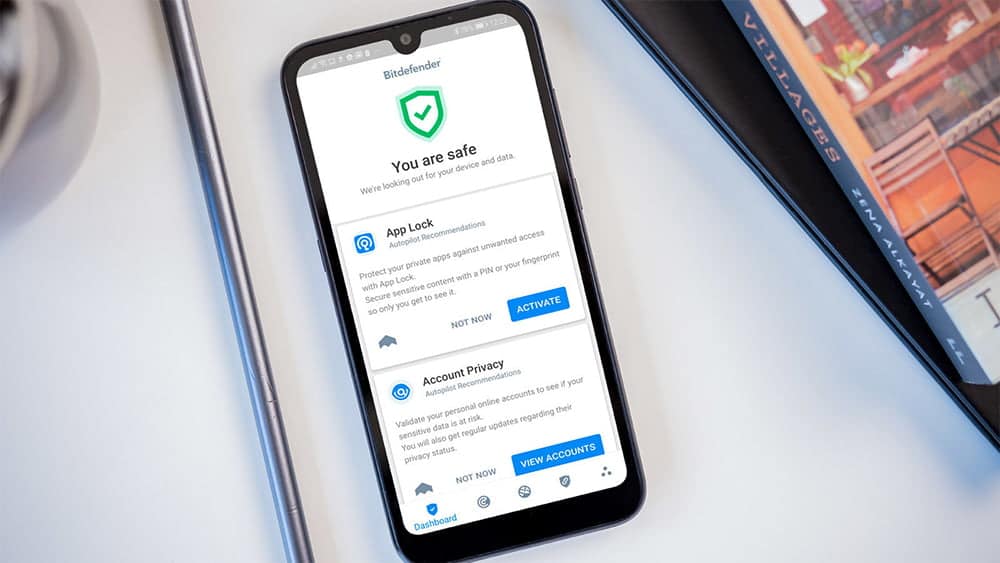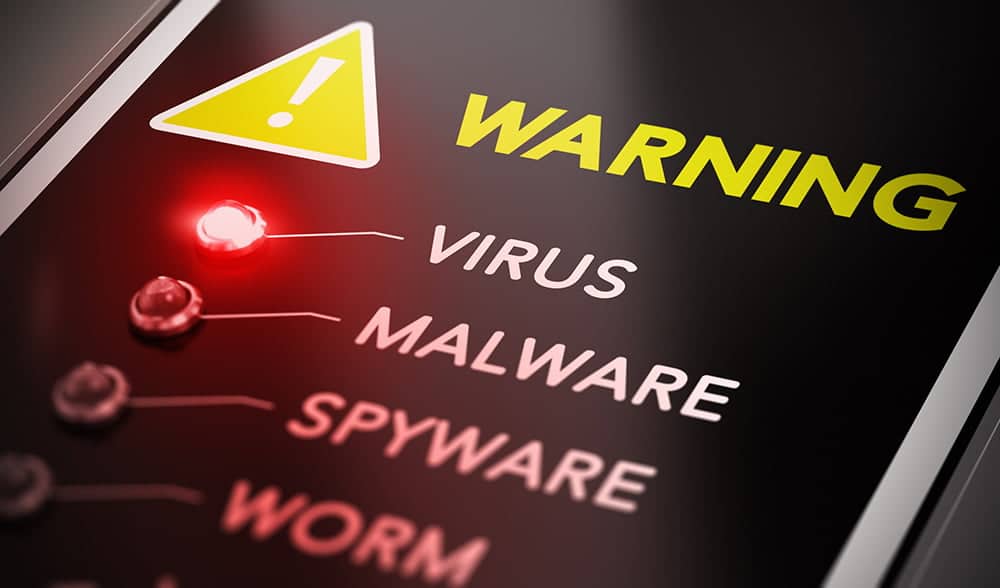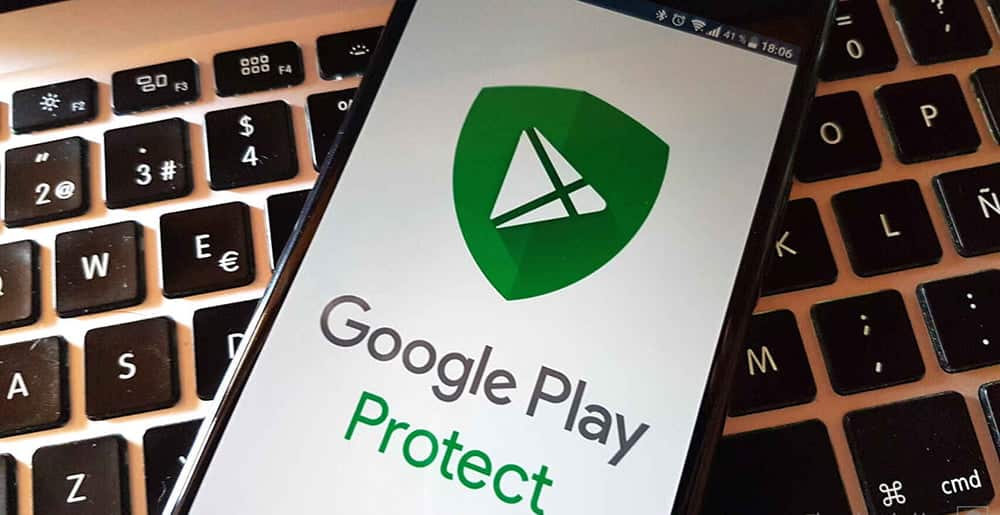A friend of mine once told me that more than half of viruses and malware are manufactured by the same antivirus companies. Of course, I didn’t believe it at first, but if you try to think about it and find out who is the beneficiary behind the viruses, you will immediately realize that the security software companies are the biggest “beneficiary” behind them.
But leave those conspiracy theories and think about it logically and ask; Do we really need antivirus software on our Android phones?
Viruses and malware pose a real threat to all Android phones. If these viruses find any vulnerability in your phone, they will damage it to leave it in a miserable state. They are capable of stealing your personal information, filling your phone with a flood of annoying ads, not to mention draining your phone resources excessively.
So, the only safe option is to rely on security and antivirus software, but are antivirus apps the only, first and last deterrent to these threats, or is it just a marketing ploy that can aggravate the problem instead of solving it?
How do antivirus apps work?

In order to know whether you still need security applications or not, you need to know and understand how and how security programs work, and then you will realize, fortunately, that it is not too complicated.
In a statement issued by the Security Research Company AV Comparatives In 2019, I wrote a comprehensive report on how and how antivirus applications work on the Android system, and the result was surprising. It turns out through research that most security apps on Android do not literally do anything on the phone during the process of scanning malicious apps and services.
So what do these apps do on the phone? It turns out that most security applications rely on a pattern.”whitelistTo compare all the apps on the phone, if they find any app from a vendor, company or entity that is not known in this list, it will be flagged as malicious software or app.
Some of the other security applications depend on the “pattern”Black listIt scans all the applications on the phone, and if it finds that there is any application installed on the phone within the “black list”, it will be considered as a malicious program or application or a virus.
Although it is a useful way to scan the phone, it does not provide any protection at all because the style and style of black and white lists is not and will not be enough to counteract cyber attacks. The reason for this is that in 2020, a statistic was monitored Statista Which indicates that the number of viruses and malware on the Android system per month is up to 482,579 malware, which is equivalent to 16,000 viruses per day. It is an astonishing number that is difficult to track.
This means that even if antivirus companies update their black and white lists, they will not be enough to deter so many daily threats, nor will these lists be comprehensive enough.
In fact, there may be thousands of viruses and malware that have not been detected yet, and some of them may already be on your phone, and the security software could not recognize them due to not being included in their lists. Thus it can be concluded that Android security software leaves the user in a false sense of security.
Continue also: Explain how to stop Automatic update of apps on Android phones.
Protection programs harm Android phones in more than one way

A false sense of security is not the only risk that may affect your phone. The other problem is that antivirus programs are running all the time in the background, and they do nothing but drain the phone’s resources and negatively affect its performance.
These apps have background animations all the time and are programmed to run and scan in real time, thus not only draining battery power but also putting extra burden on phone resources like CPU and RAM.
It all depends on what kind of security apps you use, as there are some that have the potential to slow down your phone tragically.
Then comes another problem, which is calledFalse PositiveWhich means false positive alert, meaning that there are some security applications that detect strange applications as malicious applications and viruses, and they are in fact just elementary applications that do not contain any threats or risks, but they are developed by small, unknown companies, but they are not included in the lists of anti-virus applications. viruses.
Thus, the security applications on your phone will try to warn you that they are malicious programs and ask you to act quickly and delete them. But some security applications give themselves the right to act on their own and automatically delete these applications without even bothering to ask you.
Worst of all, there are obscure security programs that have gained a reputation for their cheap and sometimes free subscription prices. These are the worst malicious apps that wreak havoc on your phone, more than any other virus. The reason is that you will most likely give it all the permissions that you may request to work on your phone and in the background all the time, and in this way you allow it to display its ads on your phone to make a percentage of the profits through you.
You can also see: The correct way to charge the mobile battery Are you charging your mobile correctly? Here are the most important tips for charging the phone battery with the previous link.
Antivirus companies are primarily responsible for virus promotion campaigns

Most anti-virus software and application companies are the ones who amplify events and give viruses larger than their natural sizes and paint ugly pictures of them as a pandemic or a dangerous global epidemic that will destroy everyone who stands in its way. They are really just advertising campaigns to urge users to rush to buy security software right away.
In fact, if you are a professional user and play by the right rules, it is rare or almost impossible for your phone to get hurt. The Android system has become on its own capable of dealing with all dangerous threats on its own, and all the security measures it contains negate the need for any third-party antivirus software or tools.
Yes, Android is the most widely used operating system on earth and the most vulnerable to virus infection, but now it is powerful enough to stand up to all threats.
What you should do: Let Google Play Protect do its thing

Unfortunately, most Android users modify the default security rules in the system, which creates an opportunity for malicious apps to cross into the phone unintentionally.
Most malicious programs and viruses come through suspicious applications, and although they are sometimes able to infiltrate and be present on the official Google Play Store, Google has recently become very strict about this, and it has become rare – and almost impossible – It arrives at the store.
This is why Google by default does not allow us to install third-party apps from sources other than Google Play. So if you rely on the Google Play Store only to install all your apps, then you are absolutely safe.
Google routinely checks all apps, but if there are some suspicious apps, they will be checked and reviewed by a human team. Today, the Android system is able to deal with malware that tries to collect user information and data and fill phones with annoying ads and deals with it properly.
As for antivirus apps, they are supposed to scan your phone for strange and malicious behaviors, help boost phone performance and improve security, privacy, and data protection features. But really most of the security apps that are being promoted don’t do anything like that.
But on the other hand, Google Play Protect does it all perfectly.
Play Protect has been developed based on complex algorithms capable of learning, adapting and dealing with new threats, and thanks to the level and depth of its validity on the phone, it is able to scan the phone system and all its services better than any external application. It will remove malicious apps even without your permission.
This protection not only scans your phone, but is also able to protect you while you are on the Internet by checking the URLs you visit and files you try to download to your phone, monitoring network connections and warning when you visit any dangerous website.
Make sure that there is no antivirus app available on Android that is as tough as Play Protect because it simply doesn’t have the access and resources that Play Protect does. So, in a nutshell, make sure that you are completely safe and without any third-party antivirus applications.
